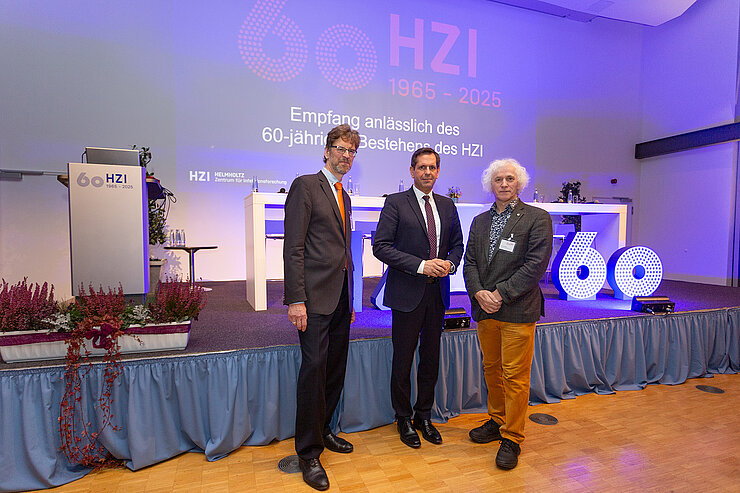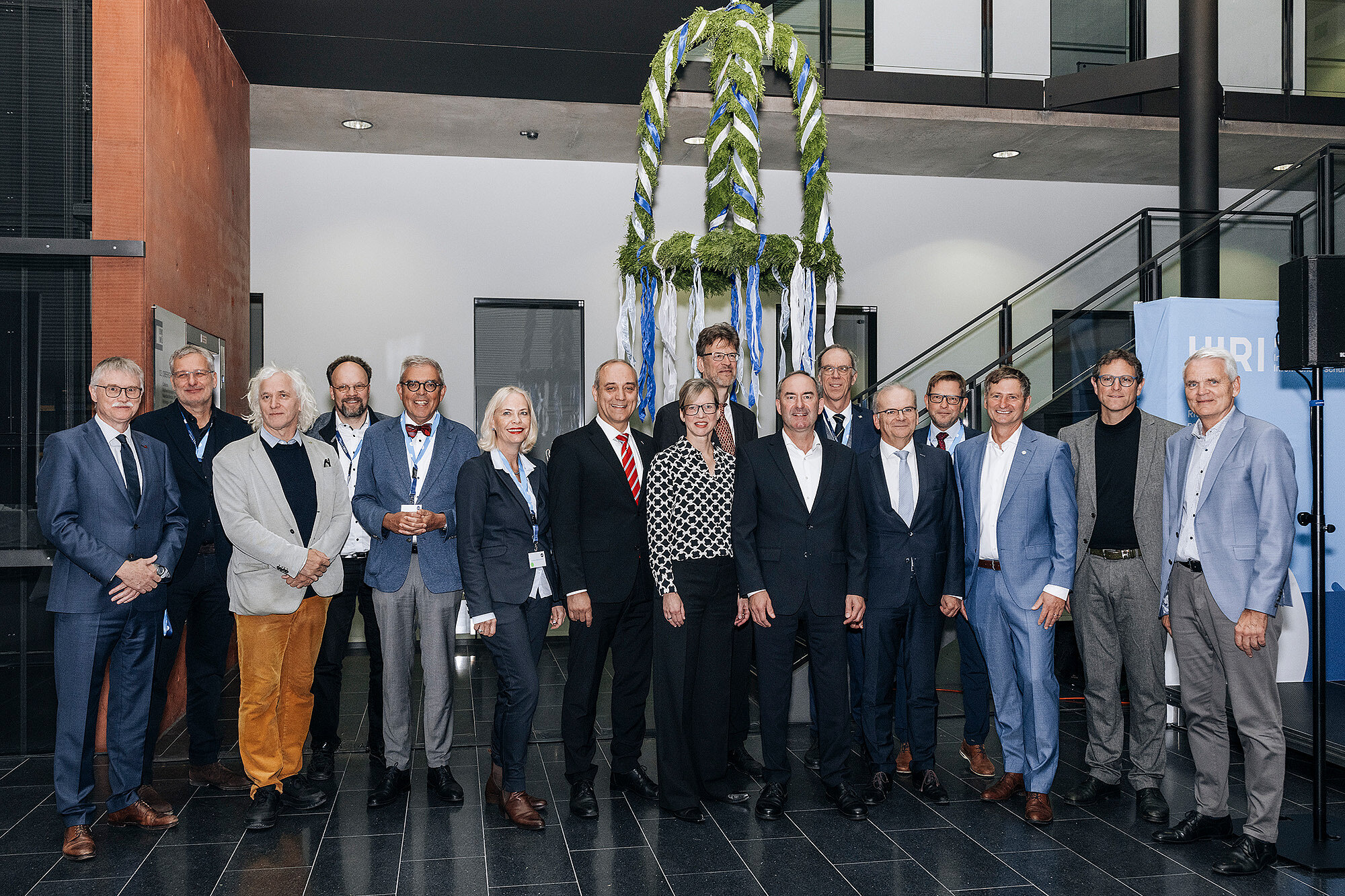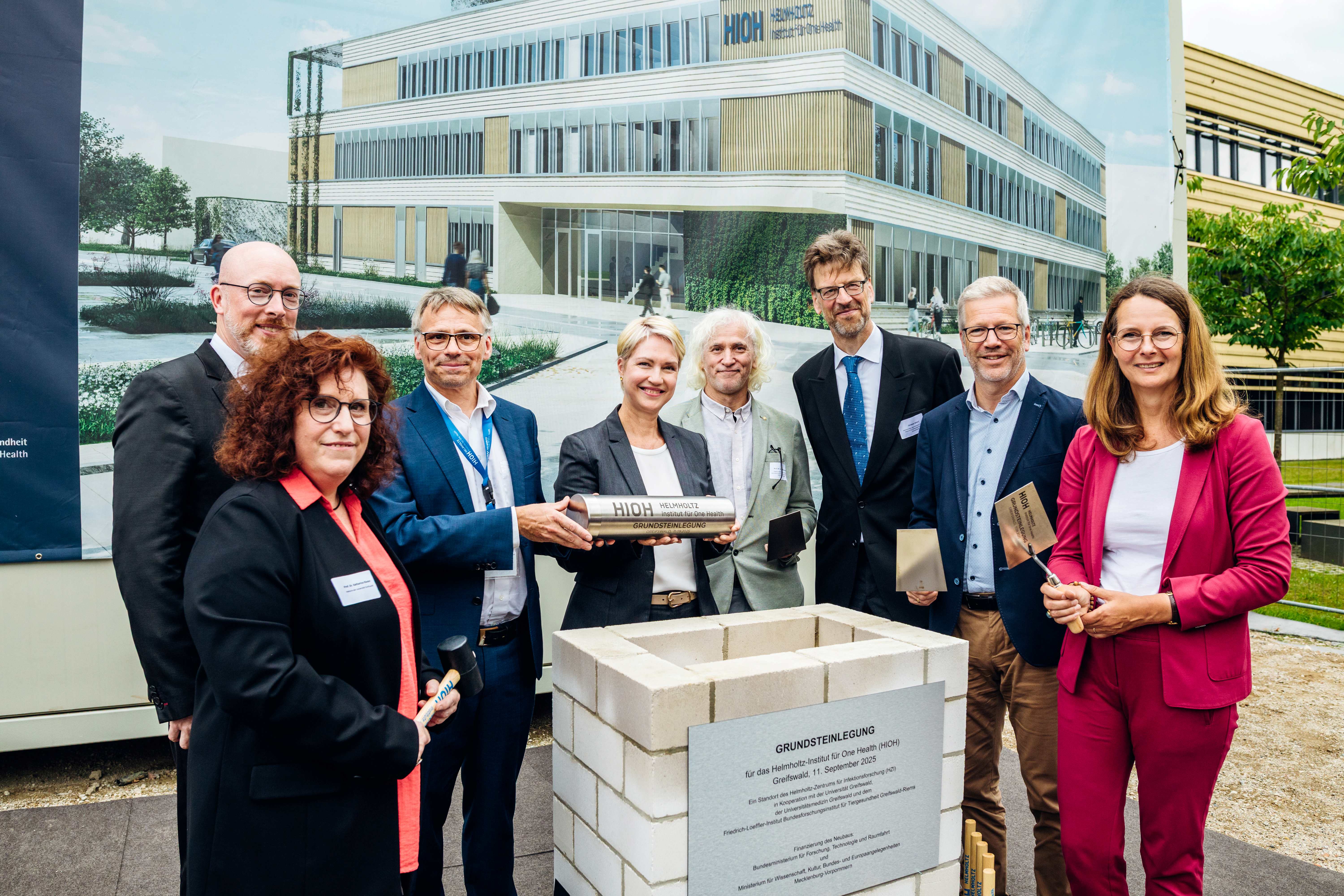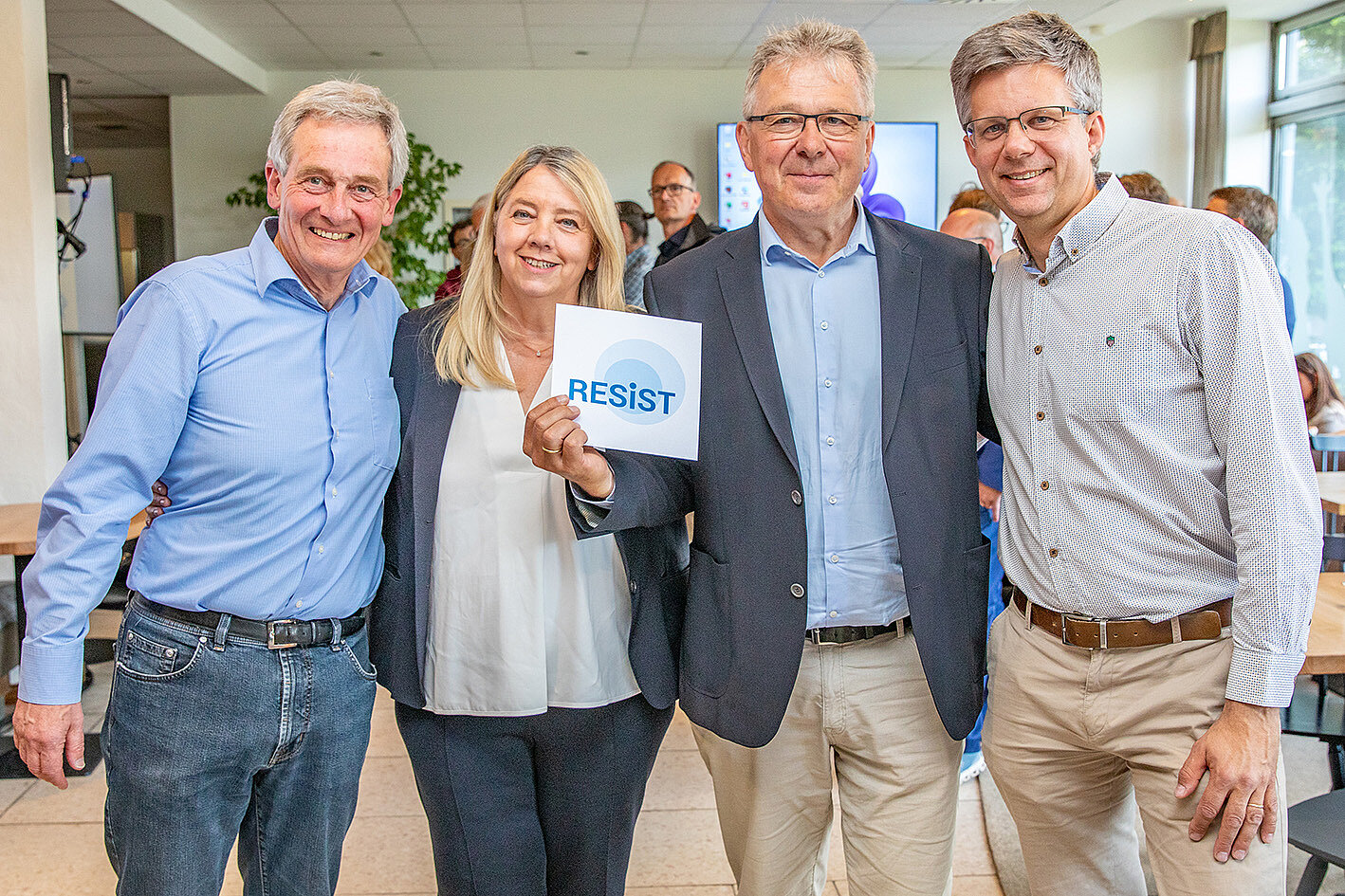"Infection research is a key scientific field that will continue to gain in importance in the future. The HZI is an absolute fixture in this field and is also ideally positioned to meet future challenges. In the six decades of its existence, it has repeatedly and successfully demonstrated its forward-looking approach to research and medical care. Scientists from Germany and abroad come together at the HZI to develop new therapies and vaccines as well as improved prevention strategies to contain the spread of diseases. With their excellent work, they are making an important contribution to the health of society and to international research," said Olaf Lies, Minister President of Lower Saxony.
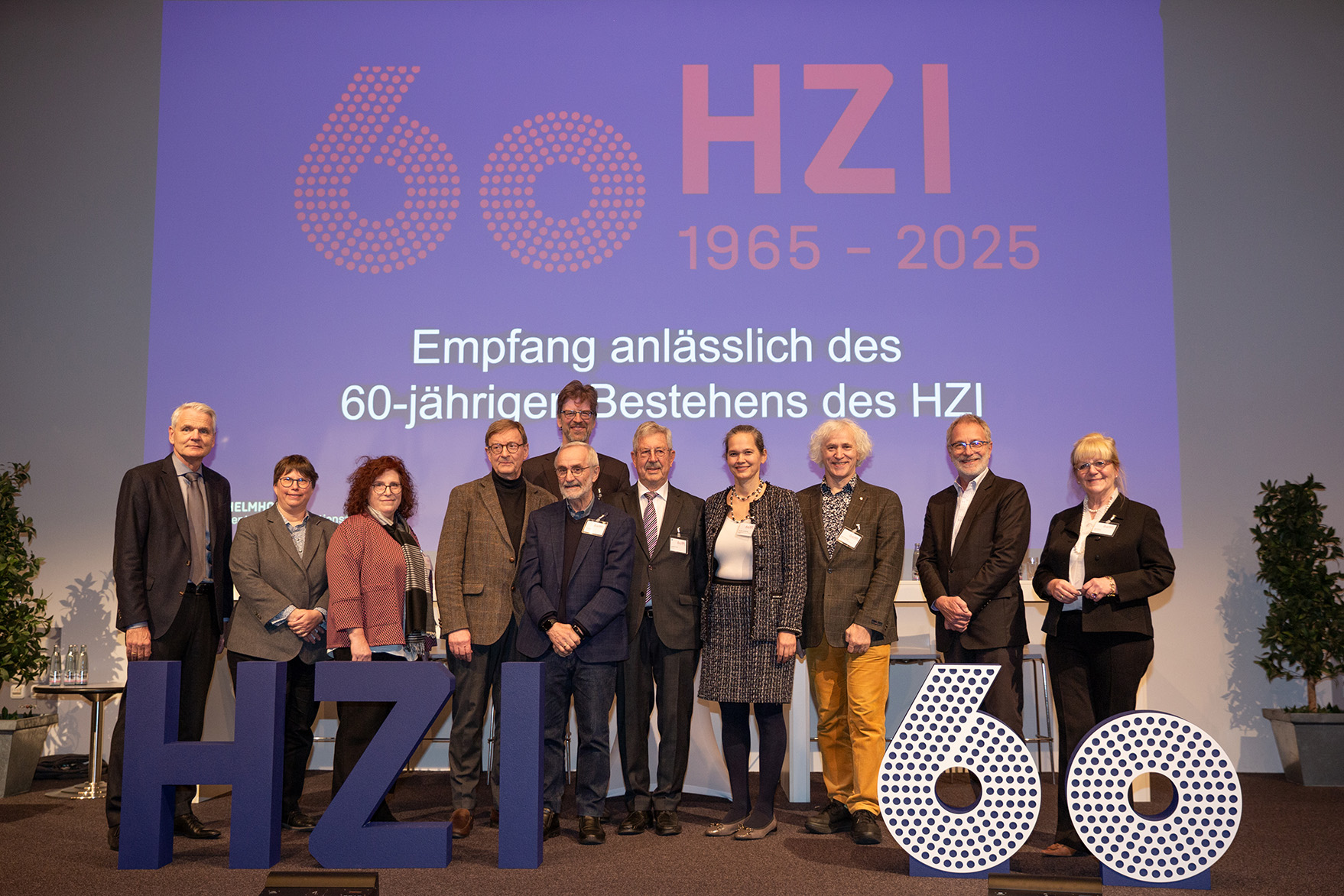
Helmholtz Centre for Infection Research celebrates its 60th anniversary
Today's Helmholtz Centre for Infection Research was founded in 1965 as the Institute for Molecular Biology, Biochemistry and Biophysics (IMB). In 1975, the center was taken over by the federal government and renamed the German Research Centre for Biotechnology mbH (GBF) in 1976. In the following decades, the focus was on biotechnology, which helped the GBF achieve international success. At the beginning of the 2000s, research activities increasingly concentrated on infections, which was finally reflected in 2006 with the renaming of the center to Helmholtz Centre for Infection Research.
"At the former GBF, among other things, the foundations were laid for reading genes and cloning them. This was a fantastic contribution to science and also to the history of science. Following its further development into today's HZI, the center has grown into the largest institution for infection research in Germany. Our goal for the future is to become one of the best institutes for infection research worldwide, and in order to achieve this, we are trying - also with valuable support from the political side and from the Helmholtz Association - to attract the best young minds from all over the world to Germany," said Prof. Josef Penninger, Scientific Director of the HZI, who welcomed the guests together with Christian Scherf, Administrative Director of the HZI.
In order to position infection research in the best possible international comparison, the HZI has now established additional sites in Braunschweig, Hanover, Greifswald, Hamburg, Saarbrücken and Würzburg together with university and non-university partners. At all of these sites, scientists are researching the mechanisms of infectious diseases and their defenses, developing new active substances and vaccination strategies and using their results to provide the basis for innovative solutions for the diagnosis, prevention, treatment and monitoring of infectious diseases.
"The future of infection research - in Germany and worldwide - depends crucially on how resolutely we bring together excellent science, new technologies and rapid transfer. The Helmholtz Centre for Infection Research plays an outstanding role in this," said Martin Keller, President of the Helmholtz Association. “The HZI has excellent national and international networks. At the same time, it consistently focuses on strategic fields of the future - from artificial intelligence, personalized infection medicine and global health to the systematic fight against antimicrobial resistance.”
As a member of the Helmholtz Association, 90 percent of the HZI's funding comes from the federal government and ten percent from the host states. The HZI reports to the Federal Ministry of Research, Technology and Space (BMFTR), which was represented at the anniversary by Prof. Veronika von Messling, Head of the Life Sciences Department at the BMFTR and Chairwoman of the HZI Supervisory Board. "The HZI has been a central pillar of infection research in Germany for 60 years. Its work on resistance, AI and big data, new vaccination platforms and biotechnology strengthens our ability to prevent outbreaks, detect them early and respond quickly. With its international network, technological expertise and strong support for young scientists, the HZI is of central importance to society," said von Messling.
“The Helmholtz Centre for Infection Research plays a key role within the Helmholtz Association and far beyond: It combines excellent basic research in the field of infectious diseases with the social mission of translating research results into clinical application as quickly as possible,” said former President of the Helmholtz Association Otmar D. Wiestler. “Over the past decades, the HZI has developed from a biotechnology-oriented institute into an internationally visible center of excellence. It has made fundamental new discoveries in infection biology, significantly advanced systems medicine and provided decisive impetus for the development of modern anti-infectives. It is a particular pleasure for me to be here today to pay tribute to this 60-year success story.”
The festive event was rounded off by a moderated panel discussion in which the current HZI Directors were joined by the Rector of the University of Greifswald, Prof. Katharina Riedel, and the former Scientific Directors of the HZI, Prof. Dirk Heinz, Prof. Rudi Balling and Prof. Joachim Klein. The event was concluded by Prof. Christoph Huber, University Council of the Medical University of Vienna, with his keynote lecture “Translating science into survival”.

